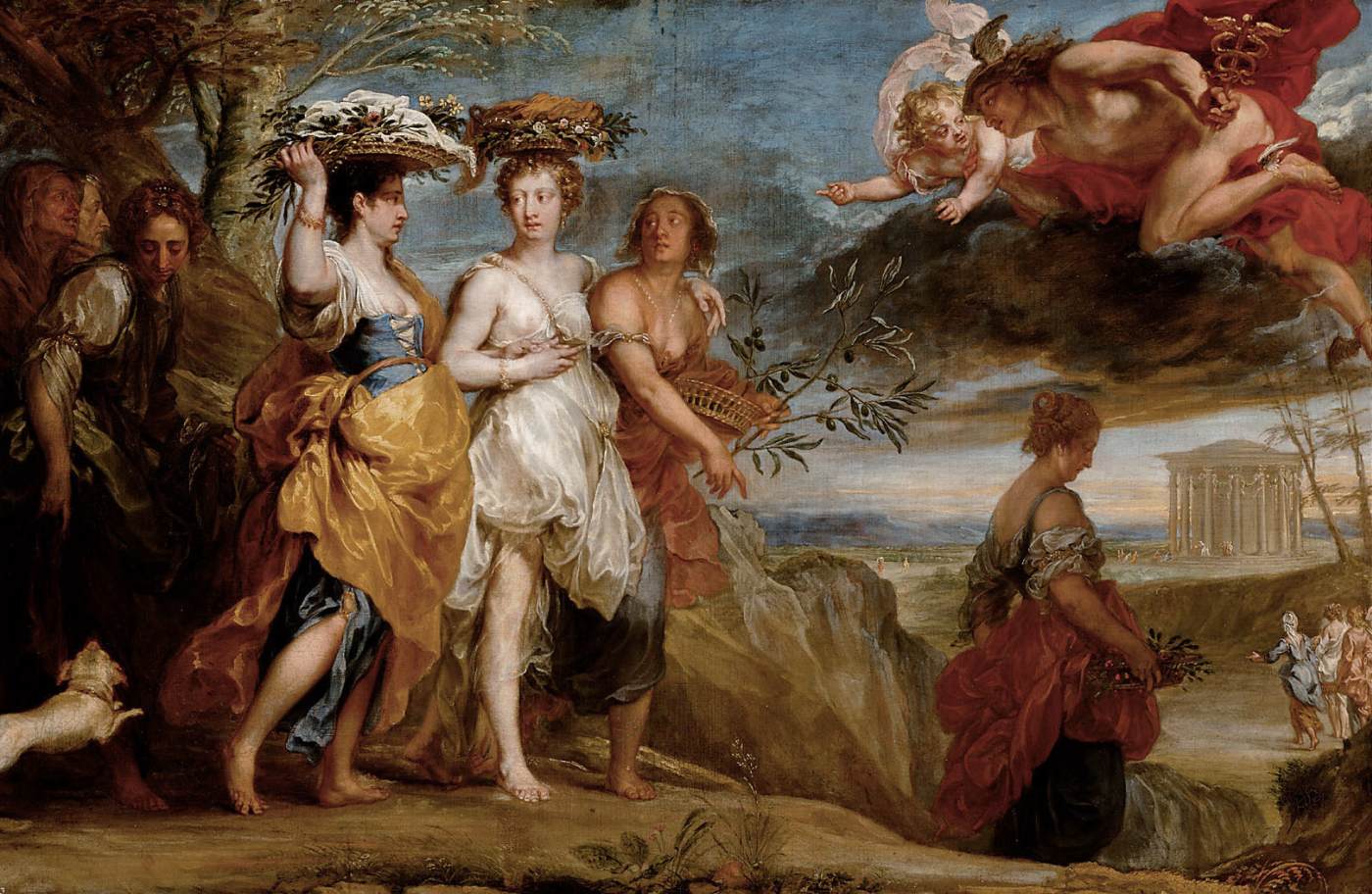Description
Jan Van Boeckhorst's painting Mercury and Herse is a Flemish Baroque masterpiece dating from the 17th century. This artwork features a complex and detailed composition that demonstrates the artist's ability to create a dynamic and exciting scene.
The painting shows Mercury, the Roman god of trade and travellers, in his winged form, approaching the beautiful Herse. The composition is divided into two parts: at the top, Mercury is in the air, while at the bottom, Herse is sitting in a garden surrounded by flowers.
The color palette is rich and vibrant, with gold and earth tones blending with cooler shades of blue and green. The minute details of textures and shadows create a sense of depth and realism in the painting.
The story behind the painting is interesting as it is based on a Roman legend in which Mercury falls in love with Herse and asks her to marry him. However, Herse's father opposes the match and Mercury, in his anger, turns him to stone.
Little-known aspects of the painting include the influence of other Flemish artists such as Rubens and Van Dyck on Boeckhorst's style, as well as the possibility that the figure of Herse was modeled on the artist's wife.
In short, Mercury and Herse is a stunning work of art that stands out for its complexity and beauty. The artist's ability to create a dynamic and exciting scene, together with the rich color palette and minute details, make this painting a gem of the Flemish Baroque.

